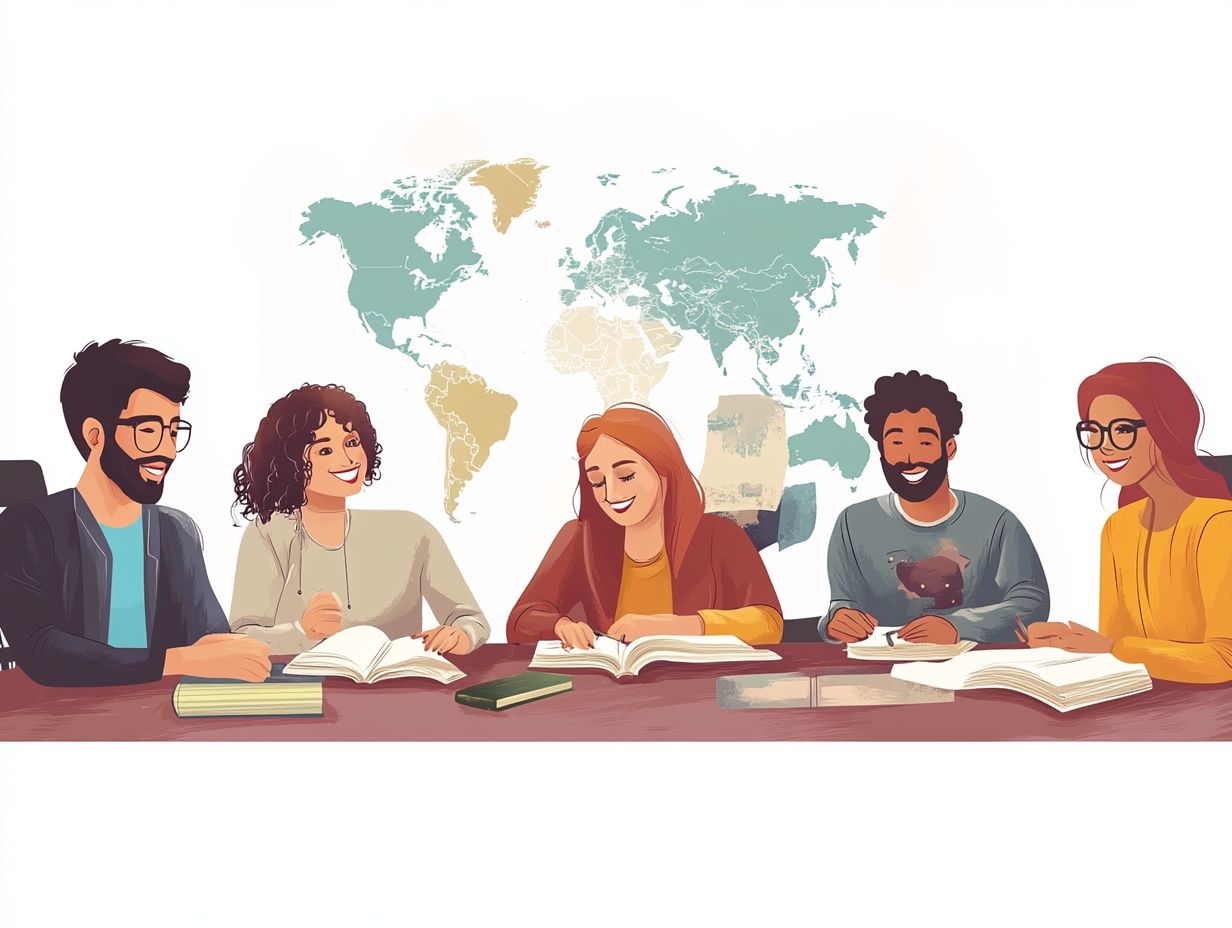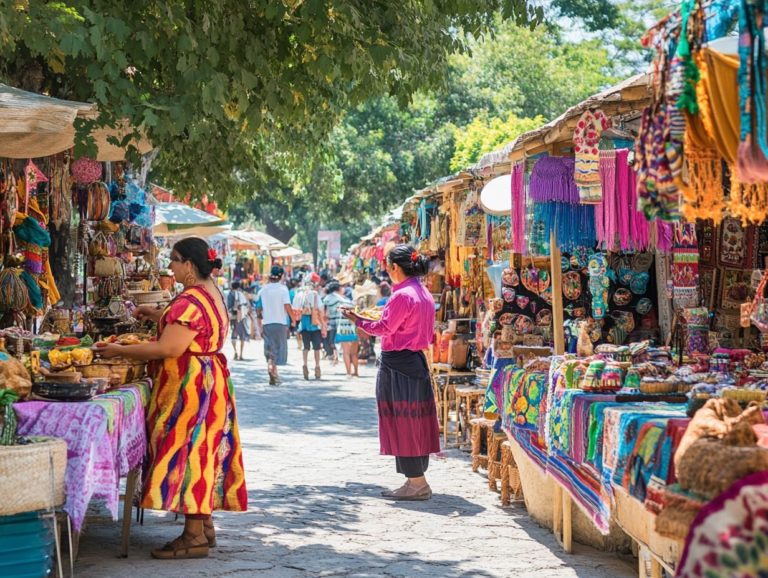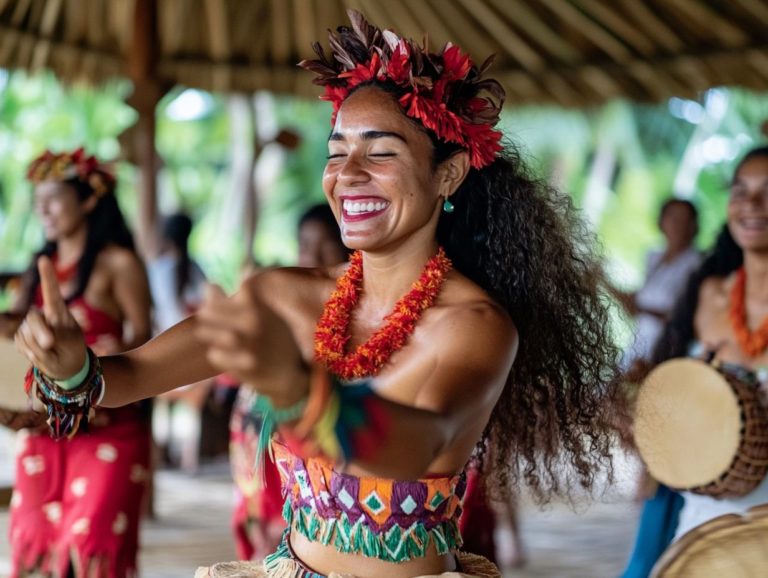The Role of Language in Cultural Adjustment
Adjusting to a new culture is an exciting journey filled with unique challenges and opportunities. At the heart of this experience lies language, which acts not only as a tool for communication but also as a gateway to understanding the subtle nuances of the culture you re entering.
This exploration delves into the importance of cultural adjustment. It emphasizes how language plays a crucial role in your integration and the various hurdles you may encounter along the way.
Get ready to explore effective strategies for learning a new language, the nuances of different communication styles across cultures, and the myriad benefits that come with mastering a new language.
Embark on this journey with us as we navigate the intricate relationship between language and cultural adaptation.
Contents
- Key Takeaways:
- The Importance of Cultural Adjustment
- Language as a Key Factor in Cultural Adjustment
- Language Barriers and Challenges in Cultural Adjustment
- Strategies for Improving Language Proficiency
- Cultural Differences in Language Use
- Benefits of Learning a New Language for Cultural Adjustment
- Frequently Asked Questions
- What is the role of language in cultural adjustment?
- How does language affect cultural adjustment?
- Is learning the language necessary for cultural adjustment?
- What are the challenges of learning a new language in a new culture?
- How can one improve their language skills for cultural adjustment?
- Can language barriers hinder cultural adjustment?
Key Takeaways:

- Cultural adjustment is crucial for successfully adapting to a new culture and should be approached with an open mind and willingness to learn.
- Language plays a key role in cultural adjustment, as it can facilitate or hinder integration. Understanding and overcoming language barriers is essential for a smooth transition.
- Improving language proficiency through effective learning strategies can greatly enhance cultural adjustment and improve communication with individuals from different cultural backgrounds.
The Importance of Cultural Adjustment
Cultural adjustment is crucial for your academic success and overall well-being, especially as an international student in Malaysian public universities. Embracing a new culture means navigating a range of complexities, from grasping local customs to establishing social networks that enhance effective cross-cultural communication.
This process is particularly vital for postgraduate international students like you. You often encounter unique challenges related to language and cultural differences. If these challenges aren’t addressed, they can lead to feelings of psychological distress.
Understanding cultural adjustment is key to creating a supportive learning environment that boosts your success.
Why It’s Important to Adapt to a New Culture
Adapting to a new culture is essential for you as an international student. It enables you to overcome educational challenges and enrich your overall learning experience.
This process allows for smoother communication with your peers and instructors. It also lessens any feelings of isolation that may emerge in unfamiliar settings.
Embracing cultural adaptation leads to an uptick in your academic performance. Grasping local customs and language subtleties enhances your ability to engage actively in discussions and group projects.
Successful adaptation fosters social interaction, enabling you to make friends, build meaningful relationships, create support networks, and elevate your university experience. By employing tailored strategies, such as joining cultural exchange programs and seeking mentorship, you can navigate these challenges and truly thrive both academically and socially.
Language as a Key Factor in Cultural Adjustment
Language proficiency is a cornerstone of cultural adjustment, acting as a vital bridge for you to fully engage in your educational journey and social interactions.
In Malaysian public universities, where a rich tapestry of languages and dialects flourishes, effective communication can profoundly enhance your learning experiences and foster deeper connections with your multicultural peers.
Navigating language barriers isn’t just about academic performance; it also plays a crucial role in making friends and developing friendships among postgraduate international students.
Ultimately, mastering the local language can simplify the process of interacting with people from different cultures and pave the way for your overall academic success.
Don’t miss out on starting your journey today by joining a language class or cultural exchange program!
How Language Can Impact Cultural Integration
The ability to communicate effectively in a foreign language can greatly influence your experience in a new culture as an international student. This skill not only enhances your academic journey but also enriches your social interactions. It enables you to forge meaningful connections with peers from diverse backgrounds.
When you express yourself in the local language, you often feel more included in group activities. This inclusion helps reduce feelings of isolation that can come with entering a new environment. Being skilled in a foreign language opens doors to a deeper understanding of the culture, fostering a genuine sense of belonging. These connections help you transition into new communities, bridging gaps between cultures and creating opportunities for lasting friendships that transcend borders.
Language Barriers and Challenges in Cultural Adjustment

Language barriers can make adjusting to a new country tough for international students, often leading to feelings of psychological distress and isolation in your new surroundings. These barriers can hinder effective communication, creating hurdles in both academic and social contexts.
You need to develop strategies to navigate these challenges. In Malaysian public universities, where English may not be the dominant language, enhancing your foreign-language skills becomes vital. By doing so, you can break down communication obstacles and build the supportive networks essential for your success and well-being.
Common Difficulties and How to Overcome Them
As an international student, you may face common challenges during your cultural adjustment, such as communication barriers and educational obstacles. These can hinder both your academic success and social integration.
These challenges often stem from unfamiliarity with local customs or academic norms, leading to misunderstandings and feelings of isolation. For instance, language differences might cause you to misinterpret instructions or feedback from professors. Varying academic expectations can also leave you feeling unprepared or overwhelmed.
To overcome these hurdles, it’s essential for you to actively seek social support. Whether through student organizations, mentorship programs, or informal study groups, these resources can be invaluable. By forming connections with peers and having open discussions, you can gain clarity, build confidence, and ultimately enhance your communication skills, leading to a more enriching academic experience.
Strategies for Improving Language Proficiency
Improving your language skills is vital for enhancing your academic performance and smoothly integrating into the vibrant culture of Malaysian public universities.
Effective language learning strategies focus on practical real-world communication skills that foster meaningful interactions with your peers and academic staff. These skills are crucial for overcoming language barriers and navigating the complexities of cross-cultural communication.
Ultimately, they play a significant role in your overall success and well-being as a postgraduate international student.
Effective Ways to Learn a New Language
Effective language learning methods can significantly boost your ability to communicate and integrate culturally as an international student, maximizing your educational experiences.
Consider practical approaches, such as immersing yourself in environments filled with native speakers, which can speed up your proficiency. Joining language practice groups provides a valuable platform for interaction, encouraging real conversations that reinforce what you ve learned. Online resources, like language apps and educational videos, serve as convenient supplementary tools you can use anytime.
Social support from your peers and faculty is also vital on this journey. It boosts your confidence and fosters a sense of belonging, making your path to fluency enjoyable and effective.
Cultural Differences in Language Use
Cultural differences in language use can significantly influence cross-cultural communication. As an international student, it s crucial to grasp and adapt to these nuances for effective interaction.
In the vibrant multicultural landscape of Malaysian public universities, you ll be exposed to a variety of communication styles shaped by diverse regional languages and cultural contexts. By recognizing and respecting these differences, you can effectively bridge communication barriers and cultivate stronger relationships.
This approach enriches your academic experience and enhances your social integration within the community.
Understanding and Adapting to Cultural Communication Styles

Understanding and adapting to diverse cultural communication styles is essential for international students. It helps you navigate the challenges of adjustment.
You ll often encounter varying norms related to expression, body language, and context. These can significantly influence your social interactions and academic collaborations. Some cultures value direct communication, while others lean towards indirect approaches, which can lead to misunderstandings. By recognizing these differences, you can tailor your communication style, fostering better relationships and minimizing friction.
By embracing the opportunity to learn from your peers and practicing active listening, you can gradually enhance your ability to communicate across cultures, leading to more meaningful exchanges. This adaptability enriches your experience and prepares you for a globally interconnected workforce.
Benefits of Learning a New Language for Cultural Adjustment
Learning a new language opens doors to exciting benefits for your cultural adjustment. It greatly enhances your academic success while fostering vital social support networks among international students.
For postgraduate students in Malaysian public universities, achieving proficiency in the local language can make communication seamless, minimize misunderstandings, and pave the way for deeper friendships and collaborative efforts in group projects.
As you grow more comfortable with the language, you re likely to feel a stronger sense of belonging and experience reduced psychological distress. This ultimately enriches your educational journey in profound ways.
How Language Learning Can Enhance Cultural Integration
Language learning is a powerful tool that can significantly enhance your cultural integration. It facilitates better communication with your peers and academic staff.
Language acts as a bridge, connecting you with individuals from diverse backgrounds. It enables you to share ideas, traditions, and experiences. By developing your language proficiency, you not only elevate your academic prospects but also cultivate meaningful relationships that enrich your social life.
These interactions are essential for fostering a sense of belonging within the campus community, making it easier for you to navigate the complexities of a multicultural environment. Embracing language learning can lead to increased confidence and openness, paving the way for lasting friendships and collaborative endeavors.
Frequently Asked Questions
What is the role of language in cultural adjustment?
Language plays a crucial role in cultural adjustment. It allows individuals to communicate and connect with others in the new culture, helping them understand cultural norms and build relationships. Additionally, understanding the role of social media in cultural adjustment can further enhance this process.
How does language affect cultural adjustment?

Language can help you fit in or make it harder to connect with others, depending on how well you speak it. A good grasp of the language can lead to a smoother adjustment, while struggling with language barriers can cause frustration and isolation.
Is learning the language necessary for cultural adjustment?
Learning the language of a new culture opens doors to connection and understanding. It s a key that can make your journey smooth and exciting!
What are the challenges of learning a new language in a new culture?
Challenges include differences in pronunciation, grammar, and cultural context. Finding resources and practice opportunities can also be tough, slowing your progress.
How can one improve their language skills for cultural adjustment?
To improve language skills, immerse yourself in the culture and consider taking classes or hiring a tutor. Regular practice with native speakers is also important.
Can language barriers hinder cultural adjustment?
Yes, language barriers can cause miscommunication and misunderstandings. Actively working to overcome these barriers is crucial for smoother cultural adjustment.





